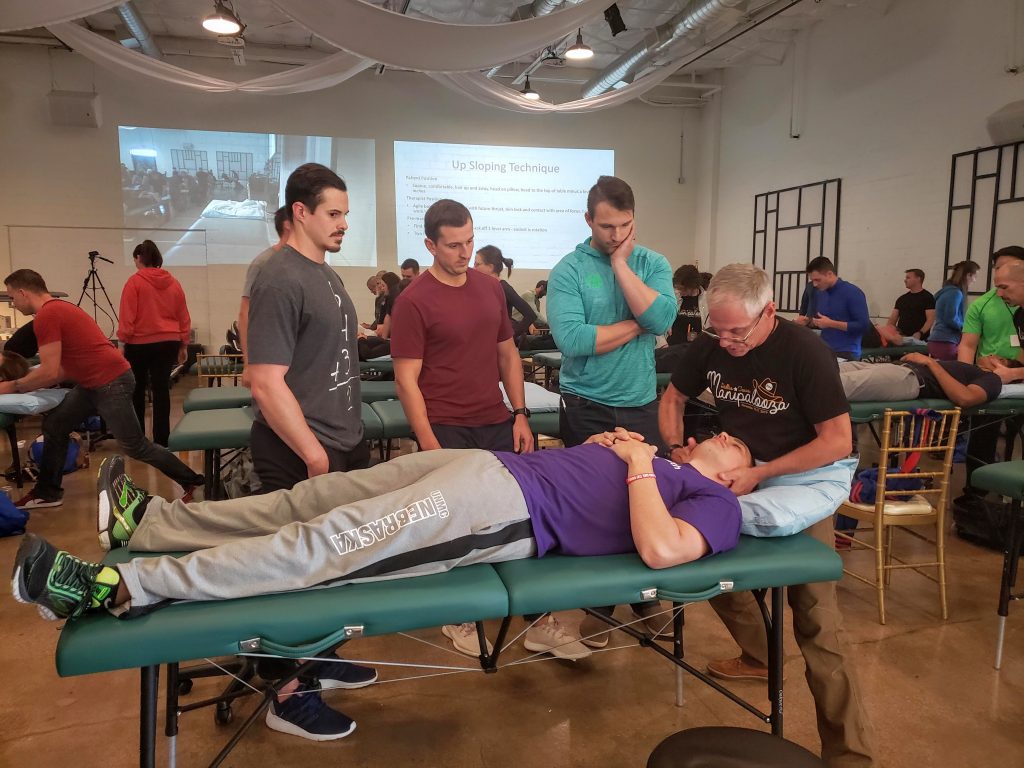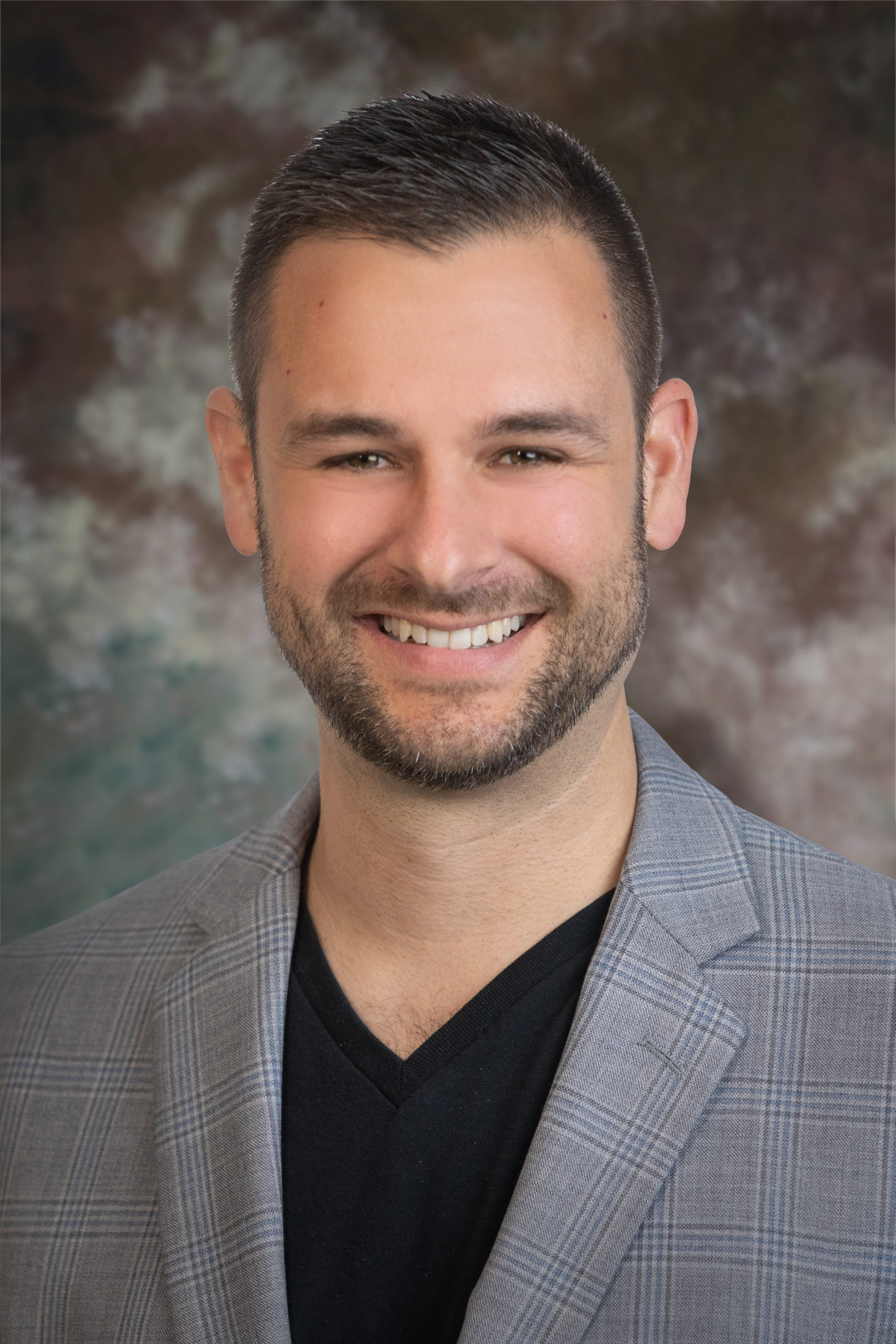
Over the past year or so, I have increasingly been reading, hearing or engaging in conversations regarding manual therapy and its “place” within physical therapy. It is clear that manual therapy is popular with addressing musculoskeletal conditions and is supported in the medical literature. However, manual therapy has been taking on more criticism, which is not a bad thing. The issue I see is that manual therapy is seen a treatment that is only used in the traditional outpatient setting and is purely passive in nature. This is farthest from the truth.
If we boil manual therapy down to what it truly is, skillful touch, we can strip the idea that this treatment approach is setting specific. If all PTs were to reflect on their practice regardless of their setting, I would argue that almost all would say that they have utilized skillful touch in their practice. Doesn’t a transfer of a patient with moderate assistance require manual therapy? What about the patient learning to walk again who needs tactile facilitatory input to improve the swing phases of gait – isn’t this manual therapy? I could go on.
The fact is that any time we skillfully lay our hands on a patient we are performing manual therapy. This idea that there is a dichotomy of being hands on or hands off is essentially saying that we give up what makes us truly PTs.
Far too long have people looked at manual therapy as a purely passive treatment and it clearly is not. We touch people when they are moving. We touch people to facilitate moving. We touch people to enhance moving. This is manual therapy.
I encourage continued discussions on advancing manual therapy within our profession. We must acknowledge that this is something that most all PTs use in some form or fashion across practice settings. Finally, I challenge you to think of manual therapy as not being a passive intervention.
Thoughts?
@ShepDPT

––– Comments
Mark Shepherd
Commented • November 13, 2017
Completely agree here. Part of the skill is making your intervention match the patient's needs, whatever they may be. Otherwise it is not patient-centered care, it is PT-centered care.
David Poulter
Commented • November 13, 2017
Thanks for your reply and clarification. I take the stance as a “manual therapist” that all MT needs patient specific context. It is an adjunct to getting a patient comfortable to perform self treatment, not the primary Rx. Thanks again.
Mark Shepherd
Commented • November 12, 2017
Thanks for your thoughts, David. I see your point here and follow your reasoning when reading your tweets as well. The point was to essentially state that manual therapy isn't just for outpatient settings or is only passive mobilizations. I did not intend my message to state that every time we touch a patient we are doing manual therapy.
David Poulter
Commented • November 12, 2017
Sorry, you are wrong. To equate touching a patient with MT is like saying anything that swims is a fish. You are demonstrating a conversion premise. A equals B doesn’t mean B eaquals A. Just because manual therapy requires touch, doesn’t logically infer that all touch is manual therapy.
Brian D'Orazio DPT, MS, OCS
Commented • November 10, 2017
Agreed. Great discussion. Brian
Mark Shepherd
Commented • November 10, 2017
That is a powerful response, Brian. I have stated in the past that we are much more than a given technique (see previous post here). This is why I get concerned when folks get really excited or invest copious amount of time in learning one specific intervention. I would rather invest in understanding when and why I do something - reasoning. To me that is skill. I don't discount, like you mention, the skillful touch that someone who has practiced when it comes to manual therapy. Soft, confident hands goes a long way. Putting both of these together ultimately makes a strong clinician regardless of technique performed.
Brian D'Orazio DPT, MS, OCS
Commented • November 10, 2017
That point had puzzled me for a long time as well. Chiro's claim great results, McKenzie devotee's claim great results, PT's going to courses that have limited skills claim great results and they probably are all right to an extent ( allowing for observational bias ). Not that having genuinely advanced skills doesn't make a clinician stand out from the crowd, my theory ( born out of many years contemplating that issue ) is that empowering movement is the common denominator. If the clinician imparts knowledge that allows the patient to be less anxious about their condition and the likelihood they are going to harm themselves, and provides appropriate instruction about how to begin the process of movement ( as it relates to that patient's condition ) then patients begin to recover. Maybe the technique or the method is less important than the empowerment....not that technique shouldn't be skilled and safe. That's my theory ( at least that's what I wrote in my first text ) after years of contemplation...probably better ones out there. Brian
Mark Shepherd
Commented • November 9, 2017
I like your points, Brian. The interesting thing here is how do we define "skillful"? Ultimately this is in the eye of the beholder (i.e. who ever is "judging them."). Most of the time this is the patient and we know all of the confounding variables that play into outcomes that might be attributed to one given intervention. Not everyone is seen as skilled when we as PTs observe one engage in manual therapy, but they may get patients better. That had always puzzled me - how can this be if they are doing a non-evidence-based intervention that involved touching a patient? Thanks for reading.
Brian D'Orazio DPT, MS, OCS
Commented • November 8, 2017
Mark, Thought provoking. Your premise is that " any time we skilfully lay our hands on a patient we are performing manual therapy ". You refer to this as fact, so that " fact " supports your position. I don't believe this position is commonly held in the profession. Manual Therapy may mean somewhat different things to different people, but I've never studied under anyone who offered this definition. In 1981, my thesis was on examination of inter-rater passive intersegmental cervical motion. My study was in biomechanics, orthopedics, anatomy etc.... At the time, Dr. Stan Paris was one of the leading ortho PT's in the world and offered to have me monitor his S3 course. The class consisted of PT's that had prior training by Dr. Paris. Because of my background, I became one of the faculty...there were 4 others, 2 of whom had reasonable skills. Not a single person in the class had any idea what to do, even after 3 days. Most could not consistently block movement in one segment while moving another and the ones that could do so still couldn't feel what was happening. My belief is that unless these PT's were going back to an office where someone was already exceptionally skilled they would either abandon the examination technique or continue to misinterpret what they felt ( though the S3 course looked good on their CV ). The reason for this long story is that skill acquisition in manual therapy is challenging for PT's who have great previous experience. Placing our hands on a patient to help them walk or perform some other activity requires training, but the skill set is easily transferable to most students and we expect those students to be reasonably skilled even during normal internships before graduation. Manual Therapy is a lifelong pursuit with variable outcomes both when considering mobilizations/manip., soft tissue techniques and others. Therefore, not all PT's acquire these skills during their clinical experience though all will know how to perform many other skilled techniques. So, a french fry is a potato, but not all potatoes are french fries. Thought provoking discussion among the contributors. Brian
Sheik Abdul khadir A.M.K
Commented • November 7, 2017
Clear viewpoint. Kudos. Sadly ,the distinction of Manual therapy by Physios had made it some specialised skill. Many yoiung physios are being diverted from this very concept and are lured by some fancy terms.
Mark Shepherd
Commented • November 6, 2017
You bet. As Louis Gifford once stated - all we are doing is "playing with processing."
Mark Shepherd
Commented • November 6, 2017
It is interesting. I have gone through a fellowship in manual therapy, but to me the fellowship was much more than just becoming competent in techniques (or skillful touch). It was the reasoning behind how skillful handling of a patient in order to empower them that was my take home. At the end of the day, no matter what training I have had, I am a PT.
gb
Commented • November 6, 2017
Very often I hear clinicians say "I'm a manual therapist" as if they have acquired some specialized skill that is separate in some way. I'm always puzzled by that non-distinction.
Brian Hill
Commented • November 6, 2017
I regard manual therapy as graded exposure. No more, no less